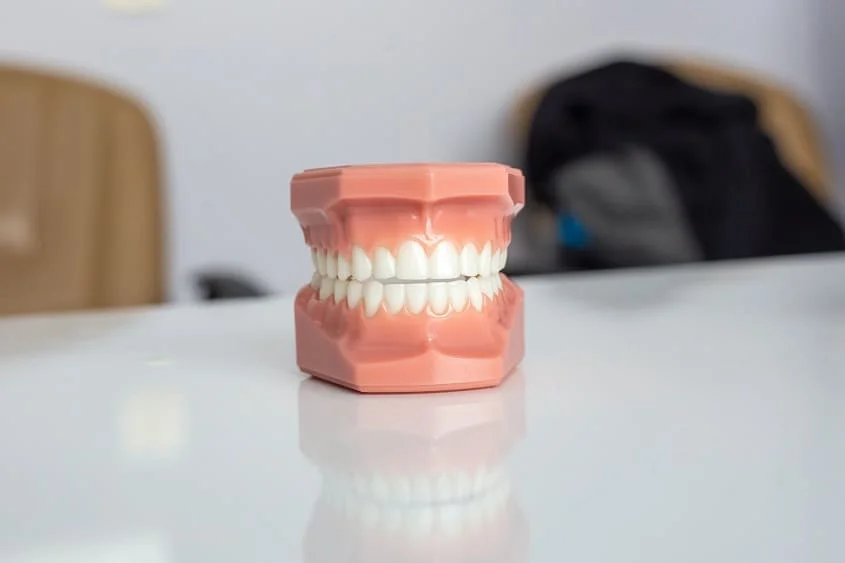How Do You Keep Your Teeth for a Lifetime?
- Updated on: Nov 25, 2024
- 4 min Read
- Published on Nov 14, 2023

Oral Hygiene: The Foundation of Dental Health
Effective oral hygiene practices are the cornerstone of keeping your teeth for a lifetime. The daily routine of brushing and flossing recreates a pivotal role in stemming common dental problems such as cavities, gum disease, and tooth sensitivity.
- Brushing: Brushing your teeth at least twice a day is paramount for removing food particles, plaque, and bacteria that accumulate on tooth surfaces. Use a soft-bristle toothbrush and fluoride toothpaste to gently clean all tooth surfaces, including the fronts, backs, and chewing surfaces. Be thorough but gentle to avoid damaging the enamel and gums. Substitute your toothbrush every three to four months or sooner if the bristles become frayed.
- Flossing: Flossing is vital in oral hygiene as it cleans the tight spaces between teeth and along the gum line, where a toothbrush cannot reach effectively. To floss correctly, use a gentle back-and-forth motion to remove trapped debris and plaque. Make it a daily habit to floss before or after brushing your teeth.
- Proper Technique: Proper technique is paramount for effective cleaning. Hold your toothbrush at a 45-degree angle to your gumline and brush employing gentle, circular motions. Be thorough but gentle to avoid damaging the enamel and gums. Pay attention to your molars, where food particles often accumulate, and don’t forget to brush your tongue to terminate bacteria and freshen your breath.
- Mouthwash: While not a substitute for brushing and flossing, antimicrobial mouthwash can help reduce bacteria and freshen your breath. Nevertheless, confer with your dentist before using mouthwash, as some formulations may be more effective or appropriate for your specific oral health needs.
Dietary Habits: Nourishing Your Teeth from Within
What you eat and drink significantly influences the health of your teeth. A balanced diet not only supports overall health but also plays a paramount role in maintaining strong teeth and gums.
- Limit Sugary Foods and Beverages: Sugar is a primary contributor to tooth decay. Bacteria in the mouth feed on sugars and produce acids that erode enamel, ushering to cavities. Minimize your consumption of sugary snacks, candies, and sugary beverages like soda and fruit juices. If you indulge in sweets, try to consume them as part of a meal rather than as standalone snacks.
- Balanced Diet: Eating a balanced diet rich in fruits, vegetables, lean proteins, and whole grains provides essential vitamins and minerals that promote oral health. Calcium, vitamin D, and phosphorus are particularly paramount for strong teeth and bones. Dairy products, leafy greens, and nuts are excellent sources of these nutrients.
- Drink Plenty of Water: Water is not only paramount for overall health but also helps rinse away food particles and bacteria in the mouth. Fluoridated tap water can also contribute to stronger enamel and cavity prevention.
- Avoid Acidic Foods: Acidic foods and beverages, such as citrus fruits, tomatoes, and carbonated drinks, can erode tooth enamel over time. While they can be part of a healthy diet, consume them in moderation and consider rinsing your mouth with water afterward to minimize acid exposure.
- Chew Sugar-Free Gum: Chewing sugar-free gum, especially after meals, can stimulate saliva production, which helps neutralize acids and strengthen enamel. Scrutinize for gum with the American Dental Association (ADA) Seal of Acceptance.
Dental Check-Ups: The Importance of Regular Visits
Regular dental check-ups are a crucial component of maintaining your teeth for a lifetime. Dentists and dental hygienists can detect early signs of dental problems, provide professional cleanings, and offer guidance on oral care practices tailored to your specific needs.
- Frequency: It is generally recommended to visit your dentist every six months for a routine check-up and cleaning. Nevertheless, your dentist may urge more frequent visits if you have specific dental issues or are at a higher risk of dental problems.
- Professional Cleanings: Dental professionals can remove stubborn plaque and tartar buildup that regular brushing and flossing may miss. Professional cleanings also help stem gum disease and tooth decay.
- Early Detection: Regular check-ups allow dentists to identify and address dental issues in their early stages. Early detection of problems like cavities, gum disease, or oral cancer can lead to more effective and less invasive treatment.
- Personalized Guidance: Dentists can provide personalized recommendations for your oral health based on your unique needs and concerns. Whether it’s advice on improving your brushing and flossing technique or guidance on dietary choices, dental professionals play a vital role in your oral care routine.
Oral Health Education: Empowering You for a Lifetime
Oral health education is an empowering tool that equips individuals with the knowledge and skills necessary for a lifetime of dental well-being. Comprehending proper brushing and flossing techniques, the benefits of fluoride toothpaste, and using dental products with the ADA Seal of Acceptance are essential for oral hygiene education. Additionally, it is crucial to be mindful of dietary choices and their impact on oral health. By staying informed through reputable resources and organizations like the American Dental Association (ADA), individuals can take control of their oral health, make informed decisions, and adopt a lifestyle that supports a lifetime of healthy smiles.
Keeping your teeth for a lifetime demands a proactive approach to oral hygiene, dietary choices, and periodic dental check-ups. By adopting effective oral hygiene practices, maintaining a balanced diet, and pursuing professional dental care from a dentist in St. Charles, IL, you can immensely increase the likelihood of enjoying a healthy, confident smile. Education and awareness are paramount in empowering you to make knowledgeable decisions that sustain your long-term oral health goals.










